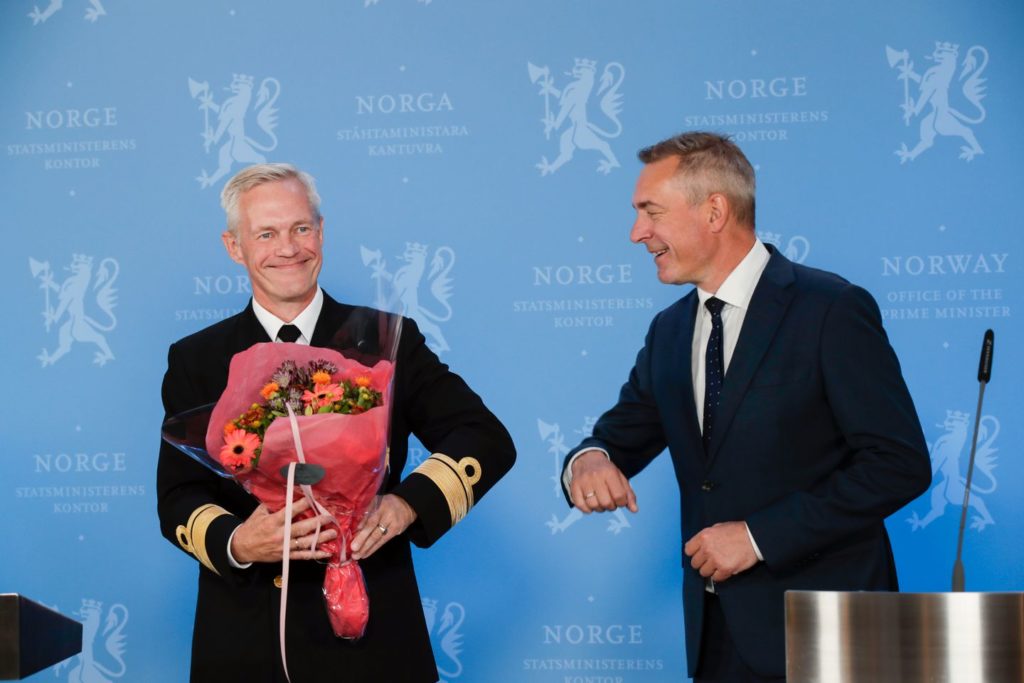
Erna on Instagram: “New face masks received, ready for state budget presentation. Relevant image? Hardly, but I could not resist.” It should be reminiscent of keeping an eye on distance and infection control, she says herself. The mask designer, Eirik Johannessen, thought it would be fun to play on a “big brother-sees-you” thing with Erna. George Orwell 1984
In June a new Intelligence Services Act was passed in the Storting
Will cost at least 165 million a year
In the state budget for next year, the Minister of Defense announces that the investment project has a cost framework of NOK 1.1 billion. The procurement will be carried out by the Intelligence Service in the period 2021 to 2025.
It has presented some additional challenges that most of Norwegian, domestic data traffic actually crosses national borders. This means that when you send an e-mail to a friend, colleague or family member in Norway, it is first sent via abroad, before it ends up in the recipient’s inbox.
Both the press and lawyers have been critical of the new law, and the concern has been linked to source protection, among other things.
The purpose is to protect Norwegian, vital interests
The broad powers of the E-service are justified by the need to protect national security interests, especially in terrorist cases. The Government emphasizes that intelligence is “a cornerstone of Norway’s defense and security” and that the E-service can now “follow the threatening actors in the digital space”. The Intelligence Service is Norway’s foreign intelligence service and its task is to provide timely, reliable and relevant information about the world around us, as a basis for decision – making for civilian and military authorities. The main purpose is to help protect Norway’s sovereignty, territorial integrity, democratic form of government and other national security interests. For this to be done, the E-service must have the necessary situational awareness on land, above and below sea level, in the air, in space and in the digital domain, according to the government.

Photo: Vidar Ruud, NTB
European Court of Justice: Requirement for mass storage of data in violation of EU law. Laws that require telecom operators to collect and store traffic data in order to fight crime are in breach of EU law, the Union Court of Justice has ruled. The court’s conclusion came in a judgment that brings together several cases related to such orders in France, Belgium, and the United Kingdom.
The Court points out that countries have a general duty to ensure that information on electronic communications is confidential. It further states that the general collection of such data, and any transfer to security and intelligence services, is a violation of people’s fundamental rights if there is no link between the person whose data is collected and the purpose of the collection.





3 Comments
Pingback: faw99 สล็อต
Pingback: ปังปังสล็อต
Pingback: land slot88